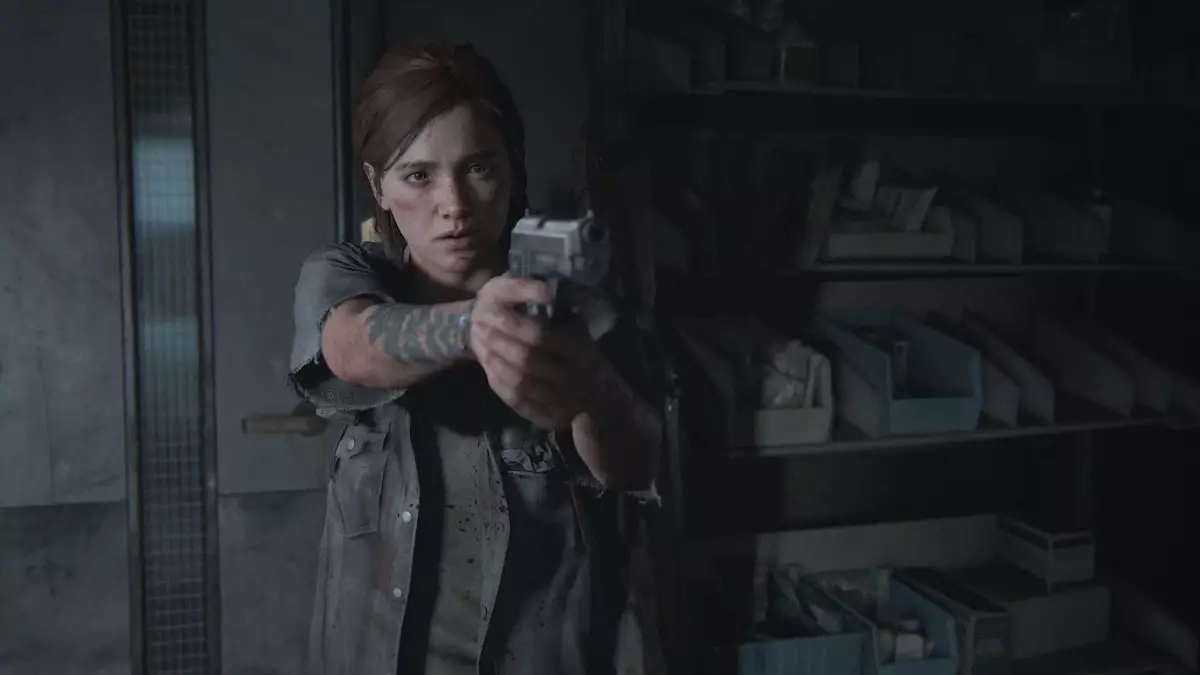At the heart of the gaming world, few franchises have garnered as much dedication and fervor as *The Last of Us*. However, recent comments from Naughty Dog’s president, Neil Druckmann, have led to a collective gasp among fans. His cryptic hints suggest that a sequel to *The Last of Us Part 2* might not come to fruition, despite prior insinuations that a concept for a third installment was on the table. This dramatic pivot raises a critical question: What is behind this shift in narrative direction, and what does it mean for the gaming community?
Firstly, it appears that Druckmann’s initial optimism regarding a third installment has hit a wall of uncertainty. In a documentary exploring the development of *The Last of Us Part 2*, he expressed a burgeoning excitement over a new concept that invigorated the saga. This optimism painted a picture of a franchise that had much further to go. However, when asked about the likelihood of a third entry, he pragmatically suggested that fans “shouldn’t bet” on seeing more from the series. Such a significant regression in hope is a disappointment, marking a potential end for a beloved narrative.
New Horizons: The Shift to New IPs
The announcement of *Intergalactic: The Heretic Prophet* has thrown a wrench into an already turbulent discussion about the fate of *The Last of Us*. It signifies Naughty Dog’s pivot towards exploring new worlds and storytelling techniques beyond the established emotional terrain of their previous franchises. This is not merely a business decision but a cultural shift within a studio known for crafting gripping, character-driven narratives. By investing in a fresh intellectual property, Naughty Dog is choosing to venture into uncharted territory instead of clinging to past successes.
While the potential of a new universe is tantalizing, it also raises concerns about the future of narratives that explore complex themes like morality and survival, which *The Last of Us* so profoundly tackled. Are we trading our beloved characters’ stories for an uncertain sci-fi adventure that, while possibly thrilling, may fail to resonate on the same emotional level? The risk in abandoning beloved narratives is high, especially in an entertainment landscape where nostalgia often dictates success.
Cancelled Projects and Creative Direction
Moreover, the cancellation of *The Last of Us Online* adds another layer of complexity to this discussion. While multiplayer adaptations frequently draw in their audiences, Naughty Dog made a bold choice to fold that project and refocus efforts on singular storytelling experiences. While many laud this return to form, one must ponder whether the studio is losing its footing in the rapidly evolving gaming industry. Are they missing an opportunity to innovate by fully embracing multiplayer environments that could expand the *Last of Us* narrative in thrilling new ways?
It’s a delicate balance; creating a successful online experience requires heavy investment in community engagement, a factor that could divert precious resources from the core storytelling that fans cherish. In this moment of uncertainty, it appears as if Naughty Dog is retracing its steps rather than pushing its boundaries.
The Fan Reception: A Torn Community
As fans, our reactions to these developments are mixed. The deep emotional resonance of *The Last of Us Part 2* has left many of us desperate for more; yet, we also recognize the risks of overstaying our welcome in that universe. Druckmann’s hesitance could reveal a wisdom grounded in the understanding that meaningful storytelling cannot be forced. Choosing not to capitulate to fan demands may ultimately preserve the series’ integrity, but it leaves a bitter taste for those who long to continue the journey alongside Ellie and the others.
In an era where sequels are often churned out for quick profit—circumventing the creative depths of their predecessors—Druckmann’s approach may be simultaneously frustrating and refreshing. The importance of allowing a narrative to breathe rather than slamming a sequel into production works against the backdrop of our desire for immediacy.
As we grapple with the implications of these developments, we are reminded that sometimes it’s not about the quantity of narratives, but rather their quality that matters most. The future remains uncertain for *The Last of Us*, but for now, we must embrace the journey ahead, even if it leads us outside familiar territories.


Leave a Reply